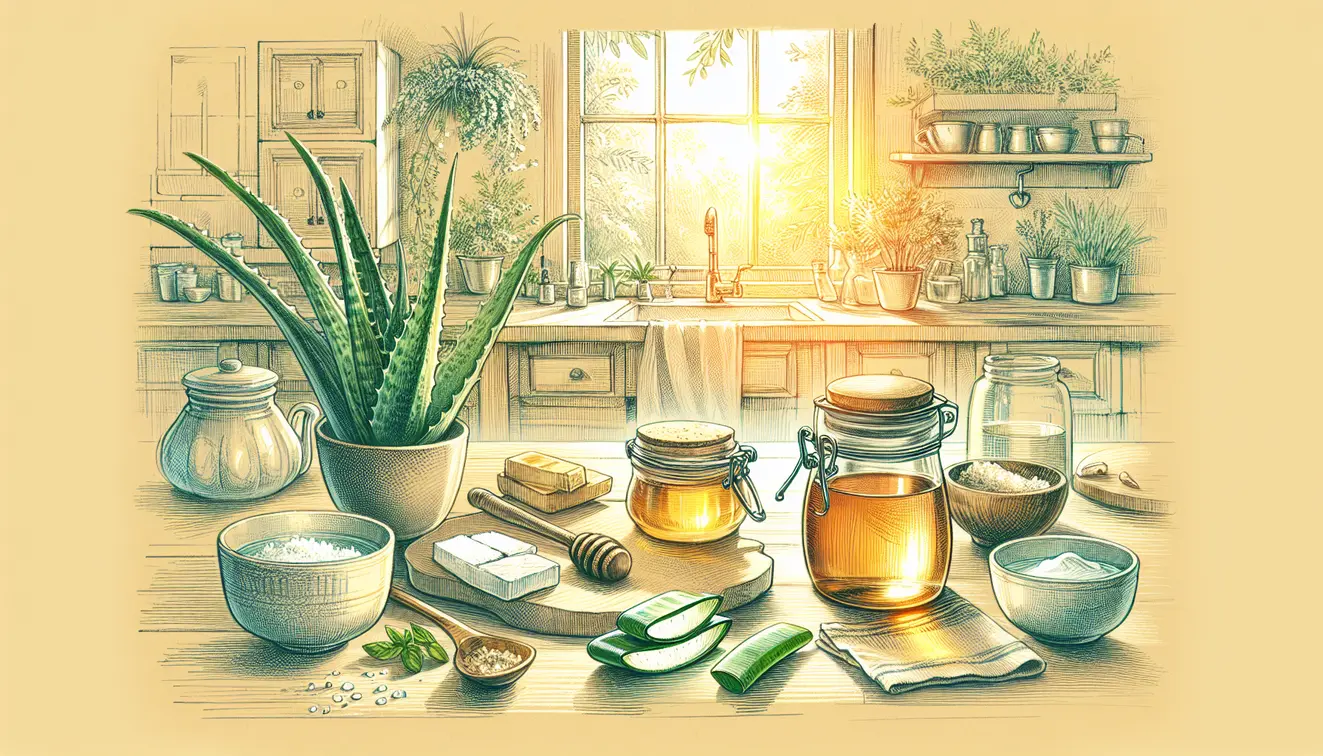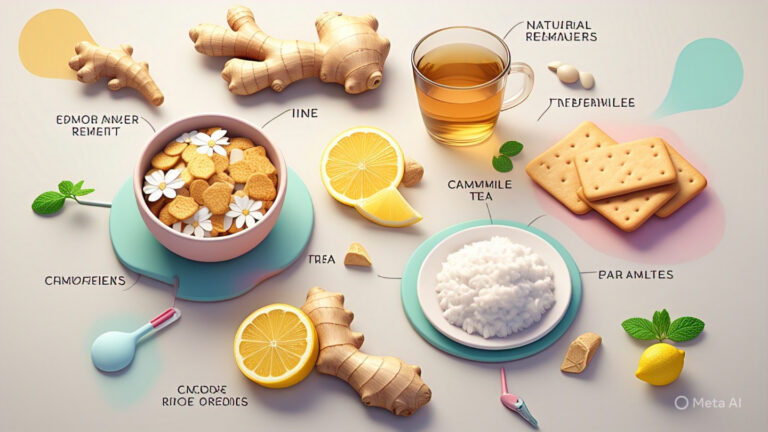Home Remedies for Mouth Ulcers: Soothe Pain Naturally with Easy Fixes
Estimated reading time: 10 minutes
Key Takeaways
- Mouth ulcers, or canker sores, are painful but often manageable with natural remedies.
- Simple kitchen items like honey, saltwater, and aloe vera can reduce pain and speed healing.
- Stress, diet, and oral trauma are common triggers to avoid for prevention.
- Persistent or severe sores lasting over 3 weeks warrant a doctor’s visit.
- Dietary choices and hygiene play a big role in both healing and prevention.
Table of Contents
- Introduction to Mouth Ulcers and Home Remedies
- What Are Mouth Ulcers? Causes and Triggers
- When to Seek Medical Attention
- Top 10 Evidence-Based Home Remedies
- Dietary Tips to Support Healing
- Natural Prevention Strategies
- Common Myths and Misconceptions
- Frequently Asked Questions (FAQs)
- Additional Resources
1. Introduction to Mouth Ulcers and Home Remedies
Mouth ulcers, often called canker sores, can turn simple tasks like eating or speaking into painful challenges. These small, irritating sores inside the mouth affect many of us at some point, leaving us searching for relief. If you’ve ever winced while sipping coffee or eating something spicy, you’re not alone—up to 25% of people deal with recurring mouth ulcers, according to the National Institutes of Health (NIH).
That’s why so many turn to home remedies for a gentle, accessible way to ease the discomfort. Natural solutions often come with fewer risks compared to over-the-counter options, and they’re usually right in your kitchen or pantry. At WikiHomeRemedies, we’re here to guide you with practical, evidence-based ideas rooted in trusted sources like the NIH and Mayo Clinic.
Our mission is to help you harness nature’s healing power safely and effectively. Whether it’s a quick rinse or a soothing application, we’ve got you covered. Let’s explore what causes this pesky problem and how to find relief naturally.
2. What Are Mouth Ulcers? Causes and Triggers
Mouth ulcers are shallow, round sores that form on the soft tissues inside your mouth, often on the gums, tongue, or cheeks. Known as aphthous ulcers in medical terms, they can sting or burn, especially when touched by food or drink. While they’re usually harmless, their presence can disrupt your daily routine, making it hard to enjoy meals or even talk comfortably.
These sores come in different forms, each with its own quirks, which we’ll break down shortly. But first, let’s unpack why they show up. Stress can weaken your immune response, leaving your mouth vulnerable. Hormonal shifts, like those during menstruation, might play a role too. Even something as simple as biting your cheek while chewing can spark one.
Certain foods, especially spicy or acidic ones, often act as triggers, irritating the delicate lining of your mouth. Poor oral hygiene lets bacteria thrive, raising the odds of sores. Some medications or underlying health issues, such as vitamin deficiencies, could also be culprits. According to the Mayo Clinic, pinpointing the cause is often the first step to managing them.
Here are some common causes and triggers to watch for:
- Stress or fatigue impacting your body’s defenses.
- Minor injuries from biting or aggressive brushing.
- Sensitivity to foods like citrus fruits or nuts.
- Hormonal changes during certain life stages.
- Health conditions such as Crohn’s disease or anemia.
Understanding these factors helps explain why remedies and prevention matter so much. Let’s look closer at the types of ulcers and specific triggers.
2.1 Types of Mouth Ulcers
Not all mouth ulcers are the same, and knowing the type can help you gauge how long the discomfort might last. Here’s a quick overview based on insights from WebMD:
- Minor Ulcers: Small, usually less than half an inch (1 cm), healing in about a week or two without scarring.
- Major Ulcers: Larger and deeper, often taking several weeks to heal and sometimes leaving scars.
- Herpetiform Ulcers: Tiny sores in clusters, resembling herpes sores but unrelated, healing in roughly two weeks.
Each type brings its own level of irritation, but minor ones are by far the most common. Recognizing them helps you decide if a home fix will do or if a doctor’s input is needed.
2.2 Common Causes and Triggers
Diving deeper, certain patterns emerge behind why these sores flare up. Per Healthline, here are key causes and irritants to note:
- Stress: It lowers immunity, making your mouth an easy target for sores.
- Dietary Choices: Spicy dishes or acidic fruits like lemons can aggravate the lining.
- Oral Trauma: A slip while brushing or a sharp chip can nick tissue, inviting ulcers.
- Medications: Some drugs, including painkillers, list mouth sores as a side effect.
- Health Imbalances: Low levels of iron or B12 can manifest as recurring sores.
Spotting these triggers in your routine is a powerful step. It sets the stage for both soothing the pain now and stopping it from coming back later.
3. When to Seek Medical Attention for Mouth Ulcers
While most mouth ulcers fade on their own with a little care, some situations call for more than a home solution. If you’re dealing with sores that stick around longer than 2 to 3 weeks, that’s a sign to reach out to a healthcare provider. Persistent pain or ulcers that grow unusually large can hint at something deeper, like a nutritional gap or a condition needing attention.
Pay attention to your body for other red flags. The Cleveland Clinic suggests watching for:
- High fever alongside the sores, which could signal infection.
- Difficulty swallowing or extreme discomfort that disrupts eating.
- Sores spreading rapidly or appearing in odd spots.
- Signs of systemic issues like fatigue or stomach troubles.
It’s always wise to err on the side of caution. A quick consult can rule out causes such as Crohn’s disease or a severe deficiency. Before we dive into natural fixes, know that your health comes first—don’t hesitate to seek help if something feels off.
4. Top 10 Evidence-Based Home Remedies for Mouth Ulcers
Finding relief from mouth ulcers doesn’t have to mean a trip to the pharmacy. Nature offers plenty of solutions, backed by science, that you can try right at home. Below, we’ve gathered ten remedies that WikiHomeRemedies trusts to ease your discomfort. Each comes with clear steps on how to use it and an explanation of why it works, drawing from reputable sources like Mayo Clinic and WebMD. Let’s walk through them together. For additional insights on similar oral issues, check out our guide on canker sores.
4.1 Saltwater Rinse
A saltwater rinse is a time-tested way to calm inflammation and cleanse the sore. It’s simple to prepare and acts as a mild antiseptic, curbing bacteria growth. The Mayo Clinic often points to this as a first line of relief.
How to Use:
- Dissolve 1 teaspoon of salt in a glass of warm water.
- Swish the mixture in your mouth for 30 seconds, focusing on the sore.
- Spit it out—don’t swallow—and rinse with plain water if needed.
Why It Works: Salt draws out moisture from the ulcer, reducing swelling while cleaning the area. Repeat this 2 to 3 times a day for a soothing effect. It’s a small step that often brings quick ease.
4.2 Honey Application
Honey isn’t just a sweetener; it’s a natural healer for mouth ulcers. Its antibacterial traits help fight infection, while its texture soothes raw tissue. WebMD highlights honey as a go-to for minor wounds like these.
How to Use:
- Dab a small amount of raw, unprocessed honey directly onto the sore.
- Let it sit for a few minutes before eating or drinking.
- Reapply 2 to 3 times daily, especially after meals.
Why It Works: Honey forms a protective layer, locking in moisture and speeding recovery. It also curbs harmful germs that might worsen the ulcer. A little stickiness is worth the comfort it brings.
4.3 Aloe Vera Gel
Aloe vera is a plant known for cooling burns and scrapes, and it works wonders on mouth sores too. Its gel calms irritation and supports tissue repair. Healthline notes its wide use in oral care.
How to Use:
- Scoop fresh gel from an aloe leaf or use pure store-bought gel.
- Apply a thin layer to the ulcer with a clean finger or cotton swab.
- Leave it on; no need to rinse. Repeat 2 to 3 times a day.
Why It Works: Aloe’s anti-inflammatory properties reduce pain, while its nutrients aid healing. It feels refreshing, almost like a shield over the sore. Keep this handy for flare-ups.
4.4 Baking Soda Paste
Baking soda might sound basic, but it’s effective at neutralizing acids that aggravate ulcers. It also cleanses mildly, keeping the area free of irritants. Many rely on this, as backed by general health guides.
How to Use:
- Mix 1 teaspoon of baking soda with a few drops of water to form a paste.
- Gently apply the paste to the sore using a clean finger.
- Leave it for 1 to 2 minutes, then rinse with water. Use once or twice daily.
Why It Works: Baking soda balances the mouth’s pH, lessening sting from acidic foods or saliva. It can feel gritty at first, but the relief is often swift. Use sparingly to avoid over-drying.
4.5 Coconut Oil
Coconut oil brings a tropical twist to ulcer care with its healing fats. It fights microbes and coats the sore for protection. Studies on WebMD suggest it’s a solid pick for skin and oral issues.
How to Use:
- Take a small spoonful of virgin coconut oil and let it melt slightly in your mouth.
- Swish or dab it over the ulcer with a clean finger.
- Reapply 2 to 3 times a day, especially before bed.
Why It Works: Its lauric acid content targets bacteria, while the oil soothes raw spots. It’s gentle enough for frequent use. A jar in your kitchen doubles as relief.
4.6 Chamomile Tea Rinse
Chamomile tea isn’t just for relaxation; it can ease mouth sores too. Known for calming inflammation, it’s a mild rinse for tender spots. Healthline points to its long use in natural care.
How to Use:
- Brew a cup of chamomile tea and let it cool to lukewarm.
- Swish a mouthful around for 30 to 60 seconds, then spit it out.
- Repeat 2 times daily until the sore improves.
Why It Works: Chamomile’s compounds reduce swelling and promote calm in irritated tissue. It’s a soft, herbal touch for your mouth. Sip some for stress relief as a bonus.
4.7 Turmeric Paste
Turmeric, a golden spice, packs a punch against ulcers with its healing properties. Often used in traditional remedies, it fights inflammation. Research shared by the NIH supports its role in tissue repair.
How to Use:
- Mix a pinch of turmeric powder with water or honey to make a paste.
- Apply it to the sore with a clean fingertip or swab.
- Rinse after 1 to 2 minutes. Use once daily.
Why It Works: Curcumin in turmeric curbs pain signals and battles germs at the site. It might stain briefly, but the benefit outweighs the hue. Handle with care to avoid mess.
4.8 Ice or Cold Compress
Sometimes, the simplest fix is the coldest. Ice or a cold compress numbs the sting of an ulcer fast. It’s a trick many swear by for instant comfort, per general health advice.
How to Use:
- Wrap an ice cube in a clean cloth or use a cold spoon.
- Press it gently against the sore for 10 to 15 seconds.
- Repeat every few hours as needed for pain.
Why It Works: Cold shrinks blood vessels, dulling pain and swelling in the spot. It’s not a cure, but it buys time while healing happens. Keep this in mind for sharp discomfort.
4.9 Milk of Magnesia
Milk of Magnesia, often used for digestion, doubles as a shield for mouth sores. It coats and protects while easing irritation. Some dental resources endorse it for oral relief.
How to Use:
- Shake the bottle well and pour a small amount into a spoon.
- Dab it onto the ulcer with a cotton swab, avoiding swallowing.
- Rinse after a minute. Use 2 to 3 times a day.
Why It Works: Its alkaline nature counters acids and forms a barrier over the sore. It’s a quick buffer for pain. Check with a doctor if you’re unsure about frequent use.
4.10 Yogurt with Probiotics
Yogurt isn’t just a snack; the probiotics in it can restore balance in your mouth. It cools sores while supporting healthy bacteria. WebMD mentions probiotics’ potential for oral health.
How to Use:
- Choose plain, unsweetened yogurt with live cultures.
- Eat a spoonful or apply a small bit directly to the sore.
- Use once or twice daily, ideally after meals.
Why It Works: Good bacteria fight off harmful ones that worsen ulcers, while the cool texture soothes. It’s a tasty way to heal. Keep a tub ready for both diet and relief.
5. Dietary Tips to Support Healing and Prevent Mouth Ulcers
What you eat plays a big part in how fast your mouth heals from ulcers. While remedies tackle the pain, your diet can support recovery and keep sores at bay. Let’s look at some practical food choices to help, drawing on insights from WebMD.
Stick to soft, bland foods that won’t scrape or irritate—think bananas, oatmeal, or mashed potatoes. Nutrient-rich options like eggs or spinach, packed with B12 and iron, aid tissue repair. Staying hydrated is key too; water keeps your mouth clean and prevents dryness that worsens sores.
On the flip side, some foods can slow healing. Avoid:
- Spicy dishes that burn already tender spots.
- Acidic fruits like oranges or tomatoes that sting.
- Crunchy items such as chips or nuts that might nick tissue.
Small shifts in your plate make a difference. Pair these choices with remedies for a fuller approach to comfort. Healing starts from within, so nourish wisely.
6. Natural Prevention Strategies for Mouth Ulcers
Stopping mouth ulcers before they start feels like a win, and nature offers ways to do just that. By tweaking daily habits, you can lower the chances of those pesky sores returning. Let’s walk through some strategies grounded in advice from the Cleveland Clinic.
Keep your mouth clean with gentle brushing and flossing to avoid buildup that invites sores. Stress often fuels ulcers, so try calming practices like deep breathing or a good night’s sleep. Hydration and a balanced diet round out your defense, keeping your body’s systems in check.
Consider these steps to stay ahead:
- Use a soft toothbrush to prevent scrapes on gums or cheeks.
- Track food triggers with a diary to spot patterns.
- Explore B vitamins or zinc with a doctor’s nod if deficiencies are suspected.
- Skip harsh mouthwashes that dry out or irritate your mouth.
Prevention ties directly to understanding your triggers. Build on what you’ve learned about causes and diet to create a routine that works. You’ve got the tools to take charge.
7. Common Myths and Misconceptions About Mouth Ulcers
With mouth ulcers being so common, it’s no surprise that misinformation floats around. Clearing up these myths helps you focus on what truly works. Let’s set the record straight with evidence from sources like the NIH.
One big misunderstanding is that mouth ulcers are contagious. They’re not—you can’t pass them through sharing a drink or a kiss, unlike cold sores caused by a virus. Another false idea is that only acidic foods cause ulcers. While citrus or tomatoes can aggravate them, stress, injury, and health issues often play a bigger role.
Some also think home remedies are just old wives’ tales. In truth, many, like saltwater rinses, have science backing their benefits. Stick to trusted information over hearsay. Knowing the facts keeps your approach to healing grounded and effective. For related misunderstandings about oral health, explore our post on cold sores.
8. Frequently Asked Questions (FAQs) About Mouth Ulcers
Even with all the details, questions about mouth ulcers often linger. We’ve gathered some common ones to tie up loose ends, using insights from Healthline and other reliable sources. Let’s address them with clarity.
How long do mouth ulcers typically last? Most minor ulcers heal in 7 to 10 days without treatment. Larger or clustered sores might take up to 3 weeks. If they persist beyond that, see a doctor.
Can home remedies completely cure ulcers? Remedies like honey or aloe vera ease symptoms and speed healing, but they don’t fix underlying causes like stress or deficiencies. They’re best as part of a broader plan.
Are there risks to using certain natural remedies? Some, like apple cider vinegar, can be too harsh and worsen irritation. Stick to gentle options we’ve covered, and consult a professional if unsure.
What should I do if remedies don’t work? If pain lingers or sores spread after a couple of weeks of trying remedies, reach out to a healthcare provider. There could be a deeper issue needing attention.
These answers aim to fill any gaps. Your comfort and confidence in handling ulcers matter to us.
9. Additional Resources for Mouth Ulcer Management
Navigating mouth ulcers can sometimes call for more than one guide, and we’re here to point you to trusted voices. WikiHomeRemedies values deepening your understanding with credible information. Explore these resources for further support.
- National Institutes of Health (NIH): Offers detailed studies on oral health and ulcer causes.
- Mayo Clinic: Provides practical guides on symptoms and when to seek care.
- WebMD: Features easy-to-read tips on natural remedies and dietary impacts.
Beyond online reading, a chat with your doctor can personalize advice to your situation. We also welcome your thoughts or questions—drop a comment or reach out via WikiHomeRemedies. For more targeted advice on related oral health topics, check out our articles on thrush in the mouth and toothache remedies. Together, let’s keep your journey to natural wellness informed and supported.










